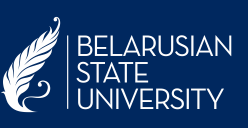
 |
Ïåäàãîãèêà èíôîðìàòèêè |
PEDAGOGY OF COMPUTER SCIENCE |
ISSN 2708-4124 |
|
FEATURES OF MODERN MEDIA EDUCATION V. V. Kazachenok, N. N. Kobylinskaya FULL TEXT: PDF (Rus) Abstract The features of the perception of media texts in the context of network interaction are considered, modern theories of media education are analyzed, which accumulate pedagogical theories and theories of media. The directions of the development of media education are concretized, the components and levels of media literacy and media competence are highlighted. Key words Media education, media literacy, media competence, media culture. Received: 04/29/2021; accepted for publication: 05/07/2021. For citation: ________________________________________ Kazachenok V.V., Kobylinskaya N.N. Features of modern media education. Electronic scientific and methodological journal “Pedagogy of computer science”. 2021;2. Http://pcs.bsu.by/2020_2/1ru.pdf Content is available under license Creative Commons Attribution-NonCommercial-ShareAlike 4.0 International License. About the authors: V. V. Kazachonak
N. N. Kobylinskaya
References 1. Fateyeva I.A. Neprofessional'noye mediaobrazovaniye i yego kadrovoye obespecheniye [Non-professional media education and its staffing] [Electronic resource]. Moskva: Nauchnaya elektronnaya biblioteka «KiberLeninka», 2021. URL: http://cyberleninka.ru (data obrash-cheniya: 01.05.2021). (In Russian). 2. Isakova T.B. Osveshcheniye problem mediaobrazovaniya v nauchnykh trudakh i professional'nykh izdaniyakh na sovremennom etape [Coverage of the problems of media education in scientific works and professional publications at the present stage]. Tol'yatti: TGU, 2018. 100 s. (In Russian). 3. Chicherina N.V. Mediagramotnost' kak klyuchevaya kompetentsiya sovremennogo spetsialista: struktura i soderzhaniye [Media literacy as a key competence of a modern specialist: structure and content]. Vestnik Severnogo (Arkticheskogo) federal'nogo universiteta. Seriya: Gumanitarnyye i sotsial'nyye nauki. 2012;1:1-7. (In Russian). 4. Kazachenok V.V. Sovremennyye tekhnologii emotsional'nogo manipulirovaniya i uchebnyy protsess [Modern technologies of emotional manipulation and the educational process]. Elektronnyy nauch.-metodich. zhurnal «Pedagogika informatiki» [Electronic scientific and methodological journal “Pedagogy of computer science”]. 2020;3. Http://pcs.bsu.by/2020_3/5ru.pdf(In Russian). 5. Fedorov A.V. Mediaobrazovaniye: istoriya i teoriya [Media education: history and theory]. Moskva: MOO “Informatsiya dlya vsekh», 2015. 450 c. (In Russian). 6. Zhilavskaya I.V. Kachestvo zhurnalistiki kak mediaobrazovatel'naya problema [The quality of journalism as a media education problem]. Vestnik Volzhskogo universiteta imeni V.N. Tatishcheva. V 2-kh t. T.1: Filologicheskiye nauki. 2016;3(21):141–147. (In Russian). 7. Kazachenok V.V. Primeneniye neyronnykh setey v obuchenii [The use of neural networks in learning]. Informatika i obrazovaniye. 2020;2:41-47. (In Russian). 8. Alekseyeva Ye.A. Rol' mediakul'tury v informatsionnom obshchestve [The role of media culture in the information society]. Aktual'nyye problemy aviatsii i kosmonavtiki: Fundamental'nyye i prikladnyye problemy gumanitarnykh nauk. 2016;2:721-722. (In Russian). 9. Isakova T.B. Modernizatsiya samostoyatel'noy raboty studentov-zhurnalistov [Modernization of the independent work of student journalists]. Voprosy teorii i praktiki zhurnalistiki. 2014;4(8):125–130. (In Russian). 10. Le-van T.N. Setevoye vzaimodeystviye obrazovatel'nykh organizatsiy po voprosam formirovaniya u obuchayushchikhsya kul'tury zdorov'ya: teoretiko-metodologicheskiy aspekt professional'noy podgotovki pedagogicheskikh kadrov [Networking of educational organizations on the formation of a culture of health among students: theoretical and methodological aspect of professional training of teaching staff]. Obrazovaniye i nauka. 2015;9 (128):83-106.(In Russian). |